Search
Search Results
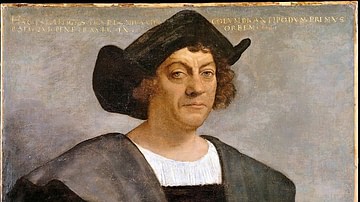
Definition
Christopher Columbus
Christopher Columbus (l. 1451-1506 CE, also known as Cristoffa Corombo in Ligurian and Cristoforo Colombo in Italian) was a Genoese explorer (identified as Italian) who became famous in his own time as the man who discovered the New World...
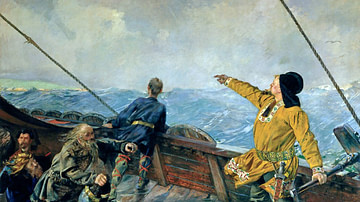
Article
The Norse in America: Fact and Fiction
The idea that it was the Norse who discovered America first emerged in the late 18th century, long before there was any public awareness of the sagas on which such claims were based. In the course of the 19th century, evidence for a Norse...
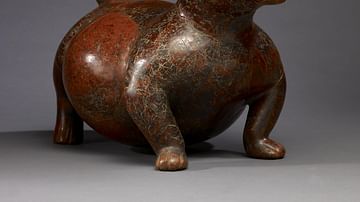
Article
Dogs and Their Collars in Ancient Mesoamerica
Dogs were an integral aspect of the lives of the people of Mesoamerica regardless of their location or culture and, throughout the region, were recognized as liminal beings belonging not only to the natural world and that of humans but to...
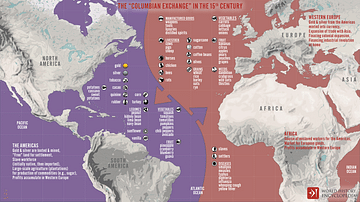
Definition
Columbian Exchange
The Columbian exchange is a term coined by Alfred Crosby Jr. in 1972 that is traditionally defined as the transfer of plants, animals, and diseases between the Old World of Europe and Africa and the New World of the Americas. The exchange...
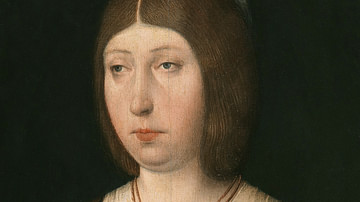
Definition
Isabella I of Castile
Isabella I of Castile (1451-1504), was Queen of Castile (r. 1474-1504) and of Aragon (r. 1479-1504) alongside her husband Ferdinand II of Aragon (1452-1516). Her reign included the unification of Spain, the reconquest of Granada, sponsoring...
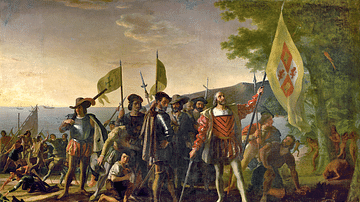
Definition
Adelantado
Adelantado was an office awarded by the Spanish Crown to conduct military campaigns in the medieval period but then repurposed during the Age of Exploration to grant an individual the right to privately fund expeditions of discovery and conquest...
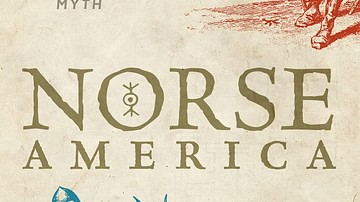
Article
Interview with Gordon Campbell
In this interview, World History Encyclopedia talks to author and scholar Gordon Campbell all about his new book Norse America: The Story of a Founding Myth published by Oxford University Press. Kelly (WHE): Thanks for joining me today...
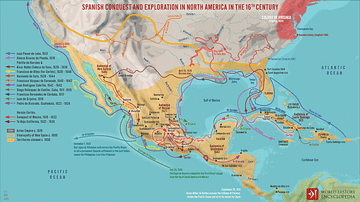
Article
The Changing Interpretation of the Spanish Conquest in the Americas
The fall in 1519 of Tenochtitlan, the capital of the Mexica or Aztec Empire, as it was later called, laid the foundation for the Spanish colonial empire on the North American mainland. It was the first time that Europeans had subjugated a...
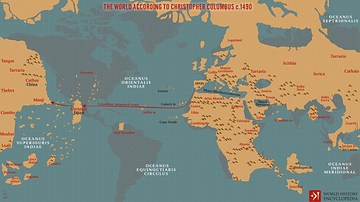
Image
The World According to Columbus c. 1490
A map illustrating Christopher Columbus’s image of the world before his first voyage in 1492. It was based on a map by Toscanelli, depicting the planet about 25% smaller than it actually was, and ignored the (correct) measurements of Eratosthenes...
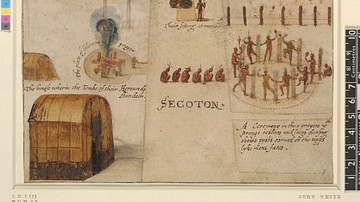
Definition
European Colonization of the Americas
The European colonization of the Americas was the process by which European settlers populated the regions of North, Central, South America, and the islands of the Caribbean. It is also recognized as the direct cause for the cultures of the...